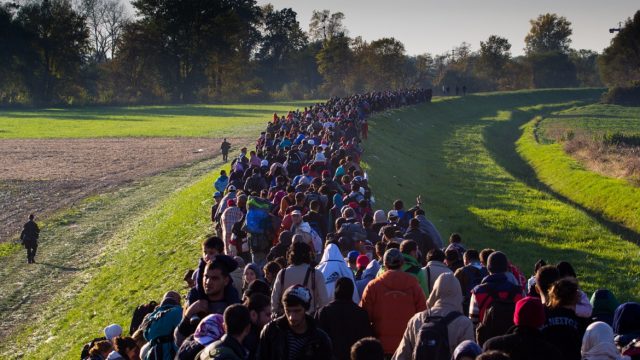
Recently, the Civil Liberties Committee endorsed a new approach to manage migration flows into the EU. It is highly criticized from conservatives who warn that the proposal denies member states to make their own national decisions on migration and asylum.
The Committee proposal amends criteria to determine which country within the EU who is responsible for examining an application for international protection according to the so-called Dublin rules. It also includes new regulations about family members and asylum seeker who previously have stayed in a certain member state.
New power to a new Coordinator
The proposal moves the power over migration from member states to the Commission in Brussels. Based on projected solidarity needs an annual “solidarity pool” will be established by the Commission, led by a new EU Relocation Coordinator.
The pool will comprise of pledges by individual member states for relocation or capacity building measures. In a situation where the needs are not met by the pledges by the member states the Commission will distribute the remaining needs on the basis of a reference key taking into account the size of the population and the total GDP of a member state.
The Committee also adopted proposal regarding new rules in case of a new migration crisis, which would apply temporarily when a member state is faced with mass and sudden arrivals of third-country nationals, allowing them to derogate from the general rules. It will be up to the Commission to decide what a member state can and cannot do.
Undermines restrictive migration policies
– If the committee’s proposal, in which the Swedish member Tomas Tobé (EPP) acted as its rapporteur for the proposal for a migration pact, becomes reality, it will undermine the possibility for national parliaments and governments to adopt restrictive migration policies, stated Charlie Weimers, fellow swede and Member of the European Parliament (ECR).
Tomas Tobé belongs to the same party as Prime Minister Ulf Kristersson, who now leads the Swedish EU presidency. Tobé makes the mistake of prioritizing short-term media limelight above all else during the half year that the presidency lasts. But this happens at the cost of the national interest of the member states.
– Future governments will bitterly regret backing the new migration pact if it becomes a reality. The Swedish government has not been able to think strategically. It’s just trying to survive the next press conference. Tomas Tobe and his party, the Moderates (EPP), will have to pay a very high political price when the cost of the migration pact materializes and they are forced to admit that they were naïve, agues Weimers.
No victory for national sovereignty
As the EU committee’s rapporteur, Tomas Tobé claims that the new proposal for a migration pact is a victory for national self-determination and that the threat of a forced redistribution between the member states has now been averted.
– Neither is true, says Weimers and explains:
Although the word “forced redistribution” has now been removed from the proposal, in Tobé’s version the Commission has the power to force member states to accept migrants if the member states’ commitments are not considered sufficient to achieve the redistribution goals. Such a redistribution of migrants’ risks being very costly for countries that have already taken in a disproportionate share of migrants.
Another problem is the new institution that is included in the proposal, called Coordinator. When a completely new structure is established for the redistribution of migrants, controlled by EU bureaucrats, there is a great risk that it will subsequently have its mandate extended over the member states.
Members of the Civil Liberties Committee want to, as soon as possible, open negotiations with EU ministers on the final form of the two new proposals to regulate migration flows. If it goes as the Committee majority wants, decisions can be announced already at the European Parliament plenary session on April 17-20.



 Subscribe
Subscribe